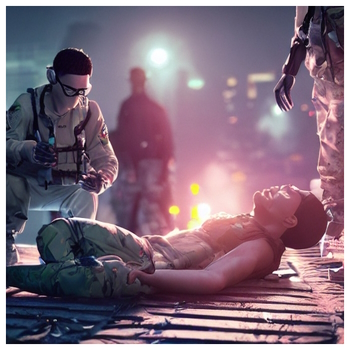
In the United States, Memorial Day is a public holiday, and a disturbing amount of people mix up Veteran’s Day and Memorial Day.
Memorial Day is about those who served and never returned.
I’ve spent a few Memorial Days in the U.S. visiting the vast military graveyards, knowing that for many whose bodies are interred had painful last moments. We who have served sign up for this, though it’s not in the brochure and it’s not something spoken or written of as often as it happens.
To make matters worse, “supporting the troops” has become a football for some politically loud sections of the United States, thinking those that do not support the decisions of the government to send people to war cannot support the troops – but then, is supporting the loss of life and quality of life for reasons that are questionable ‘supporting the troops’, or is it ‘throwing the lives of troops away’?
Take a look at what Russia has been doing with it’s troops. Forced conscriptions sent into a meat grinder for… what? Trying to reclaim territory of an entity that no longer exists (USSR)? We look at that and many of us draw in a breath and shake our heads, even as we cheer for Ukraine’s drawn out victory with their forced conscriptions, all men, with women volunteering. To what end?
For Ukraine, it’s a battle of defense – a battle of autonomy, a battle of identity, a battle of their way of life. This is something that is easily relatable to. Russia’s offensive reeks of a failed painter with a very small mustache: Conquest with 19th century tactics and 20th century weapons in a 21st century world.
In Sudan, the same thing is happening, though the lines are not as clear though the blood is just as red, and the scale is smaller from what we see reported, but it’s still happening.
This all came to mind as I was watching Guy Ritchie’s The Covenant, which is based on real events but is not a true story.
It’s a story we want to see and hear because we want the good guys to live happily ever after. Not everyone does, and in the movie only one from the team makes it back – the premise for the whole story. Those that did not make it back, though, died in support of their orders which is what Memorial Day is about – based on the idea that the government knows what is best to defend the ideals expressed over hot dogs and hamburgers on Memorial Day.
Where I have lived, where I do live, Memorial Day isn’t a holiday. Where I live presently, in Trinidad and Tobago, there’s not even an equivalent, and seeing fellow veterans is a rare thing.
Yet I remember what it’s about. There are no hamburgers or hot dogs this long weekend, a break in the death march of work we subject ourselves to. We lose people in uniform, we lose people, and we hope that we did for good reasons and better judgement when that’s not always the case.
Saying, “Happy Memorial Day” seems peculiar to me. Memorial Day is a day of reflection for me, as you can probably tell, and for it to be happy… well, I don’t think it would exist.
Memorial Day is the reminder of the price paid by others and their families and friends. In this way, I hope Memorial Day carries just a small amount of the weight we balance any victory or loss against so that we do remember – and do not lose meaningful lives over meaningless things.


